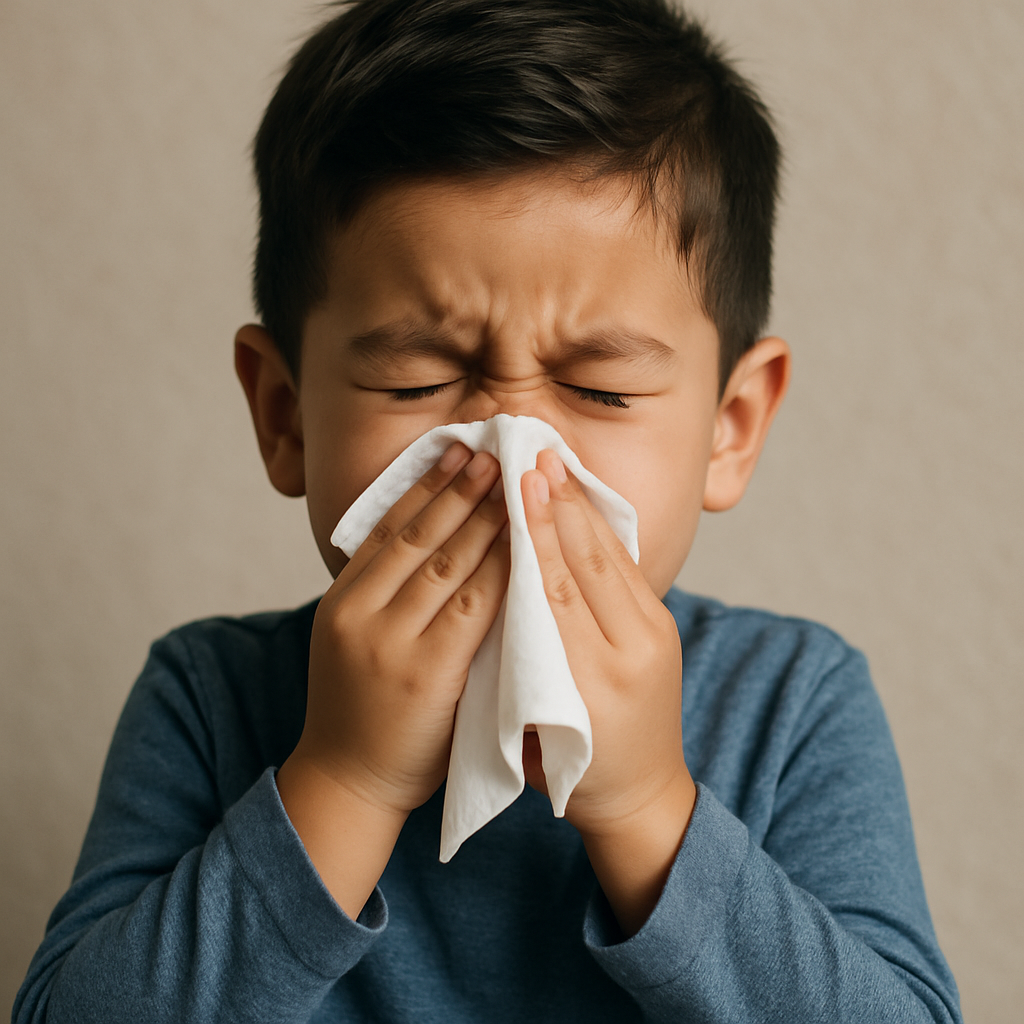Allergies
Allergies in Children: What Every Parent Should Know
Allergies are a common concern for many families—especially when children suffer from constant sneezing, itchy eyes, and nasal congestion. These symptoms are often due to allergic rhinitis or allergic conjunctivitis, sometimes casually called hay fever. Despite the name, hay fever has nothing to do with hay or actual fever—it's an allergic reaction triggered by pollen, dust, mold, or pet dander.
Common Symptoms
Sneezing and runny nose
Nasal congestion or post-nasal drip
Itchy, red, or watery eyes
Rubbing the nose or eyes frequently
Irritability or difficulty sleeping
Allergies may also contribute to secondary conditions like:
Sinus infections (sinusitis)
Ear infections (otitis media)
Asthmatic symptoms or flare-ups
When Do Allergies Happen?
While many think of spring as “allergy season,” allergies can occur year-round depending on the child’s triggers:
Spring or Summer: Pollen from trees, grasses, and weeds
Fall: Mold spores and decaying leaves
Winter: Indoor allergens like dust mites and pet dander
Treatment Options
Allergy management aims to relieve symptoms and improve daily comfort. Treatment may include:
Oral Medications:
Antihistamines: Help control sneezing, itching, and nasal drainage
Decongestants: Reduce swelling in the nasal passages
Some children may experience side effects like sleepiness or hyperactivity. These effects are often dose-related and may improve over time.
Nasal & Eye Sprays:
Helpful for localized relief
Use nasal decongestants for no more than 3 consecutive days to avoid rebound congestion
Saline Nasal Sprays:
Safe and soothing for children
Helps moisturize nasal passages and rinse away allergens
Note: Medications are generally not recommended for infants under 4 months without a physician’s guidance.
Should We Consider Allergy Testing?
If your child’s symptoms persist or if you're unsure about the triggers, consider speaking with a specialist. Allergy testing may help identify specific allergens and guide more targeted treatment, including immunotherapy (allergy shots or drops).
Let's Work Together
If you suspect your child’s symptoms are allergy-related—or if treatment hasn’t brought relief—I’m here to help. Let’s work together to find answers and bring your child long-term comfort.
Schedule an appointment today to discuss your child's allergy care.
Reviewed 5/2/2025
